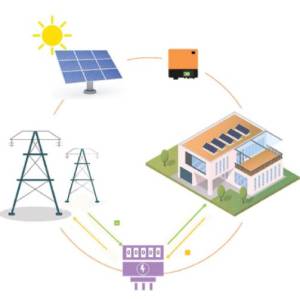
Take control of your energy future with net metering. This innovative program allows homeowners with solar panels to send excess solar energy back to the power grid, receiving credits on their electricity bill for the energy they produce. Instead of simply consuming the power generated by your solar panels, you can offset your energy usage throughout the day and potentially even eliminate your electricity bill altogether.
How Net Metering Works:
Benefits of Net Metering:
Things to Consider:
Ready to Embrace a Greener, More Affordable Future?
Net metering is a powerful tool for homeowners seeking to harness the power of the sun and reduce their reliance on fossil fuels. Contact your local utility provider or a reputable solar installer to learn more about net metering in your area and explore the possibility of installing a solar panel system. Take the first step towards energy independence and significant savings!